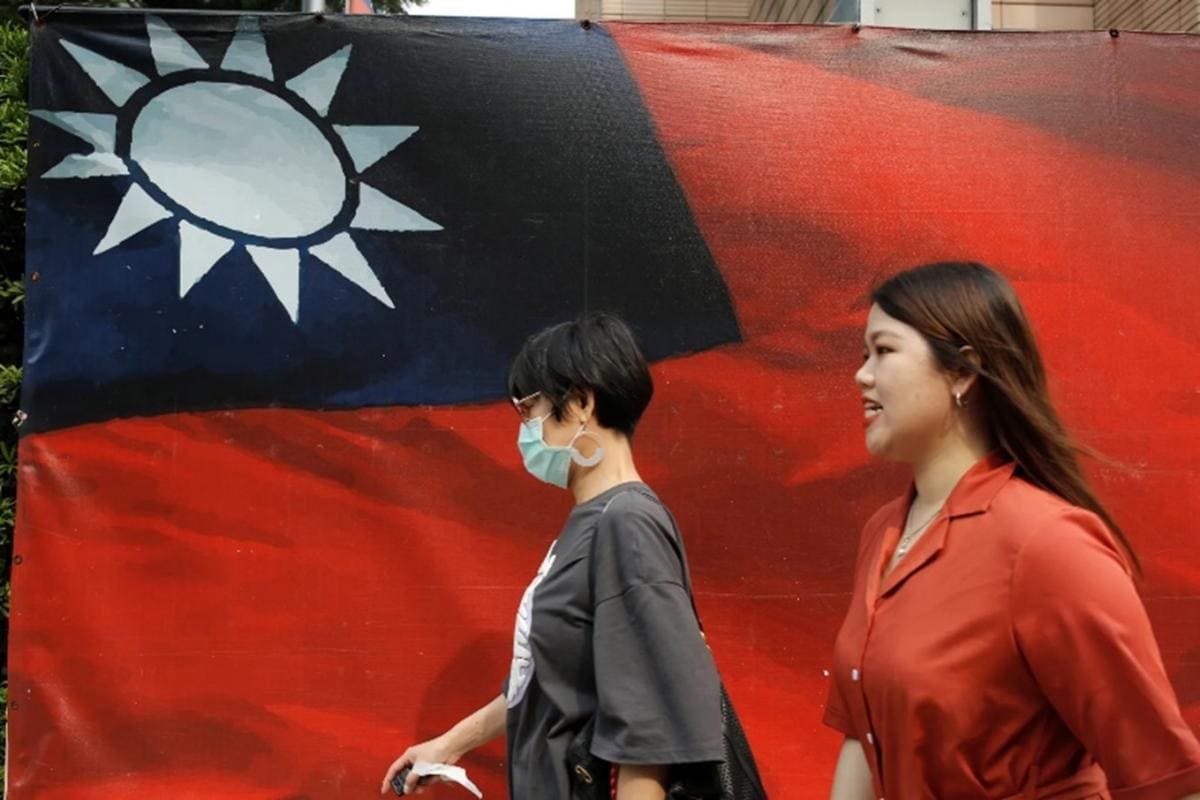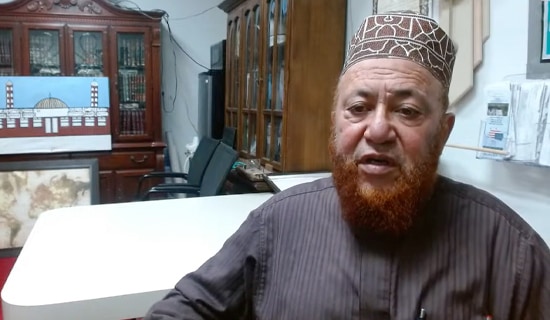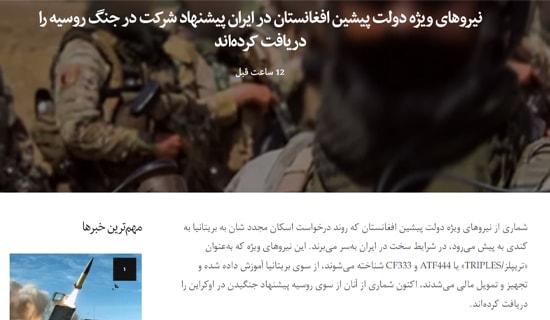Introduction
Taiwan's new president Lai Ching-te delivered his inaugural speech on May 20, 2024, entitled "Building a democratic, peaceful, and prosperous new Taiwan."[1] In his speech, Lai did not mention the Constitution of the Republic of China[2] and the "Act Governing Relations between the People of the Taiwan Area and the Mainland Area," and asserted Taiwan's sovereignty. This extremely angered Beijing, which said that Lai's nature as a "Taiwan independence worker" was completely exposed.
The spokesperson of China's Taiwan Affairs Office of the State Council emphasized in his comment on Lai Ching-te's speech that "the mainland and Taiwan both belong to one and the same China, and Taiwan is an inseparable part of China." On May 29, the spokesperson of the Taiwan Affairs Office of the State Council issued a military threat, saying in extremely harsh terms: "Lai Ching-te's relevant remarks... are a naked provocation to the one-China principle and a serious damage to the peace and stability of the Taiwan Strait. If allowed to develop, it will inevitably lead to fierce wars in the Taiwan Strait and bring serious harm to Taiwan compatriots." However, many Taiwanese and international politicians and media outlets now often say that "Taiwan has never been a part of China."

(Source: X)
Beijing's Claim To Own Taiwan Has Always Been Its Achilles' Heel
Indeed, if the word "China" refers to the People's Republic of China (PRC), or to Communist China, then this claim is tenable. In short, it is legally correct that Taiwan has never been part of the PRC.
Beijing's claim to own Taiwan has always been its Achilles' heel and is untenable. Because only the Republic of China (ROC) government, established on January 1, 1912, has ever owned and ruled both mainland China and Taiwan (from 1945-1949). The PRC government in Beijing has never ruled Taiwan for even a day.
Communist China claims to own Taiwan only because the regime believes that it has inherited all the legitimacy of the Republic of China (ROC), stating that the ROC has ceased to exist after 1949. This is of course a lie. Not to mention, before seizing power in mainland China, the Chinese Communist Party (CCP) strongly supported Taiwan's independence in order to oppose the rule of the Kuomintang government.
The current popular narrative in the international community is to abbreviate Beijing's PRC as China and the Taipei's Republic of China as Taiwan. This is not only a word game to completely separate Taiwan from China, but also a practical need for regional and international geopolitical games.
The Democratic Progressive Party (DPP) Vs Kuomintang (KMT)
The reality is that political parties that pursue Taiwan independence, such as the Democratic Progressive Party (DPP), and pro-unification political parties, such as the Kuomintang (KMT), have different degrees of acceptance of the Constitution of the Republic of China.
Ma Ying-jeou, the former president of the ROC from the Kuomintang, advocated that the two sides of the Taiwan Strait are two political entities, belonging to the same China, and that the relationship between the two sides is not an international relationship – not a relation between countries. This relation is stipulated by the Constitution and laws of the Republic of China (ROC). Taiwan's "Constitution of the Republic of China" stipulates that there is only one China, which is at least basically consistent with the one-China principle stated in the Constitution of the PRC in terms of the territorial scope of sovereignty.
The Democratic Progressive Party (DPP) and the current president, Lai Ching-te, are not like this. They believe that the sovereignty of the ROC is limited to Taiwan, Penghu, Kinmen, and Matsu, and does not include the Chinese mainland under Beijing's rule. Therefore, the current situation on both sides of the Taiwan Strait is that they are not subordinate to each other. Taiwan certainly does not belong to Beijing's China. This is the origin of the saying that "Taiwan has never been a part of China." In other words, it can also be understood as "one China, one Taiwan," or "one side, one country." This is definitely unacceptable to Beijing.[3]
The KMT believes that Taiwan belongs to the China called the Republic of China (ROC); under the pressure of reality, the DPP authority reluctantly agrees, but its ultimate goal is to achieve Taiwan's complete independence and bid farewell to China. In the eyes of the DPP and other local political parties in Taiwan that pursue Taiwan's independence, the KMT regime that retreated to Taiwan in 1949 is an alien regime, and of course they are hostile to the Constitution of the Republic of China (ROC) brought in by the KMT regime.
Republic Of China, Republic Of China Taiwan, Taiwan
For the DPP and President Lai Ching-te, "Republic of China" is still a country name that they have to use but are reluctant to do so. After all, Republic of China contains the word China. For Lai Ching-te, it is best to use only the country name Taiwan, since the DPP has a party platform that pursues "Taiwan independence" and political documents such as the "Normal Country Resolution."
In his inaugural speech, Lai Ching-te clearly downplayed the concept of China under the name ROC, he specifically stated: "Some call this land the Republic of China, some call it the Republic of China Taiwan, and some, Taiwan; but whichever of these names we ourselves or our international friends choose to call our nation, we will resonate and shine all the same."
The Beijing authorities now not only do not oppose the Taiwan authorities mentioning the name of the Republic of China, since they are afraid that the Taiwan ruling authorities will not mention the Republic of China at all. Former Taiwanese President Ma Ying-Jeou visited mainland China twice last year and this year, and mentioned the Republic of China many times, and Xi Jinping did not show any displeasure. On February 25, 2016, Wang Yi, China's minister of foreign affairs, expressed hope that Taiwan's then President-Elect Tsai Ing-wen would abide by "their own constitution" and recognize one China.
Calling Taiwan the Republic of China at least shows that the "only one China" stipulated in the Constitution of the ROC is still valid in theory. In this way, the leaders of the CCP can comfort themselves by thinking that Taiwan is at least not independent, thus saving face.[4]
For the Beijing authorities and some orthodox blue camp (such as KMT) figures in Taiwan, who accept the concept of one China and do not reject the unification of Taiwan and mainland China in the future, it is unacceptable to call Communist China "China" and the Republic of China "Taiwan." Former Taiwanese President Ma Ying-Jeou said that he never called Communist China on the other side "China" but called it "mainland."
Conclusion
Then, has Taiwan never been part of China? To answer this question, Beijing only has two choices. One is to maintain the status quo, continue to brainwash its people, repeating the lie that Beijing owns Taiwan, and using power or interests to force other countries to recognize and accept that Taiwan belongs to China. The other is to imitate Emperor Kangxi (1654-1722) of the Qing Dynasty and eventually seize Taiwan by force.[5]
How Xi Jinping will choose depends on changes in Taiwan's political trend, how the U.S. and its allies will protect Taiwan, and whether he has enough patience. As Taiwan and China drift further apart, what will Xi do?
*Chris King is Senior Research Fellow for the MEMRI Chinese Media Studies Project.
[1] See MEMRI Special Dispatch No. 11341, Lai Ching-te Takes Office As President Of Taiwan: 'China's Military Actions And Gray-Zone Coercion' Are 'The Greatest Strategic Challenges To Global Peace And Stability,' May 21, 2024
[2] The Constitution of the Republic of China (ROC) asserts that there is only one China, and the ROC has Chinese sovereignty and its territory extends to all of China, but its current ruling scope only extends to free areas (i.e. Taiwan, Penghu, Kinmen and Matsu), excluding the mainland area of the legal territory, according to the principle of "one country, two regions."
[3] See MEMRI Daily Brief No. 401, Who Should Represent China? The Chinese Communist Party's (CCP) People's Republic Of China (PRC) Or The Republic Of China (ROC) In Taiwan?, August 3, 2022
[4] See Inquiry & Analysis Series No. 1608, For Chinese President Xi Jinping, Conquering Taiwan Is A Matter Of Honor And 'Saving Face,' By Chris King, November 29, 2021.
[5] See MEMRI Inquiry & Analysis Series No. 1697, The Art Of War: China's Strategic Considerations In Conquering Taiwan, By Chris King, June 12, 2023.





